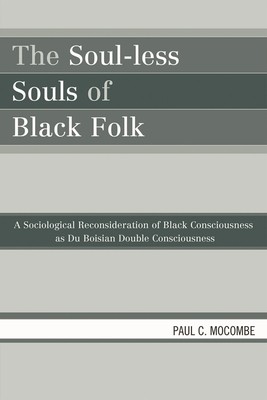
- We will send in 10–14 business days.
- Author: Paul C Mocombe
- Publisher: University Press of America
- ISBN-10: 0761842950
- ISBN-13: 9780761842958
- Format: 15.9 x 23.1 x 0.8 cm, minkšti viršeliai
- Language: English
- SAVE -10% with code: EXTRA
Reviews
Description
Since the 1960s, there have been two schools of thought on the origins and nature of black consciousness: the adaptive-vitality school and the pathological-pathogenic school. The latter argues that in its divergences from white American norms and values, black American consciousness is nothing more than a pathological form of and reaction to American consciousness, rather than a dual (both African and American) counter hegemonic opposing "identity-in-differential" (the term is Gayatri Spivak's) to the American one. Proponents of the adaptive-vitality school argue that the divergences are not pathologies but African "institutional transformations" preserved on the American landscape. The purpose of this work is to understand black consciousness by working out the theoretical and methodological problems from which these two divergent schools are constructed, in order to arrive at a more sociohistorical, rather than racial, understanding of black consciousness. Using a variant of structuration theory to account for the sociohistorical development of black consciousness formation within the American social structure, author Paul Mocombe concludes that black American life is dual and pathological only in relation to a particular interpretive community, the black bourgeoisie or liberal middle class.
EXTRA 10 % discount with code: EXTRA
The promotion ends in 21d.13:03:54
The discount code is valid when purchasing from 10 €. Discounts do not stack.
- Author: Paul C Mocombe
- Publisher: University Press of America
- ISBN-10: 0761842950
- ISBN-13: 9780761842958
- Format: 15.9 x 23.1 x 0.8 cm, minkšti viršeliai
- Language: English English
Since the 1960s, there have been two schools of thought on the origins and nature of black consciousness: the adaptive-vitality school and the pathological-pathogenic school. The latter argues that in its divergences from white American norms and values, black American consciousness is nothing more than a pathological form of and reaction to American consciousness, rather than a dual (both African and American) counter hegemonic opposing "identity-in-differential" (the term is Gayatri Spivak's) to the American one. Proponents of the adaptive-vitality school argue that the divergences are not pathologies but African "institutional transformations" preserved on the American landscape. The purpose of this work is to understand black consciousness by working out the theoretical and methodological problems from which these two divergent schools are constructed, in order to arrive at a more sociohistorical, rather than racial, understanding of black consciousness. Using a variant of structuration theory to account for the sociohistorical development of black consciousness formation within the American social structure, author Paul Mocombe concludes that black American life is dual and pathological only in relation to a particular interpretive community, the black bourgeoisie or liberal middle class.


Reviews